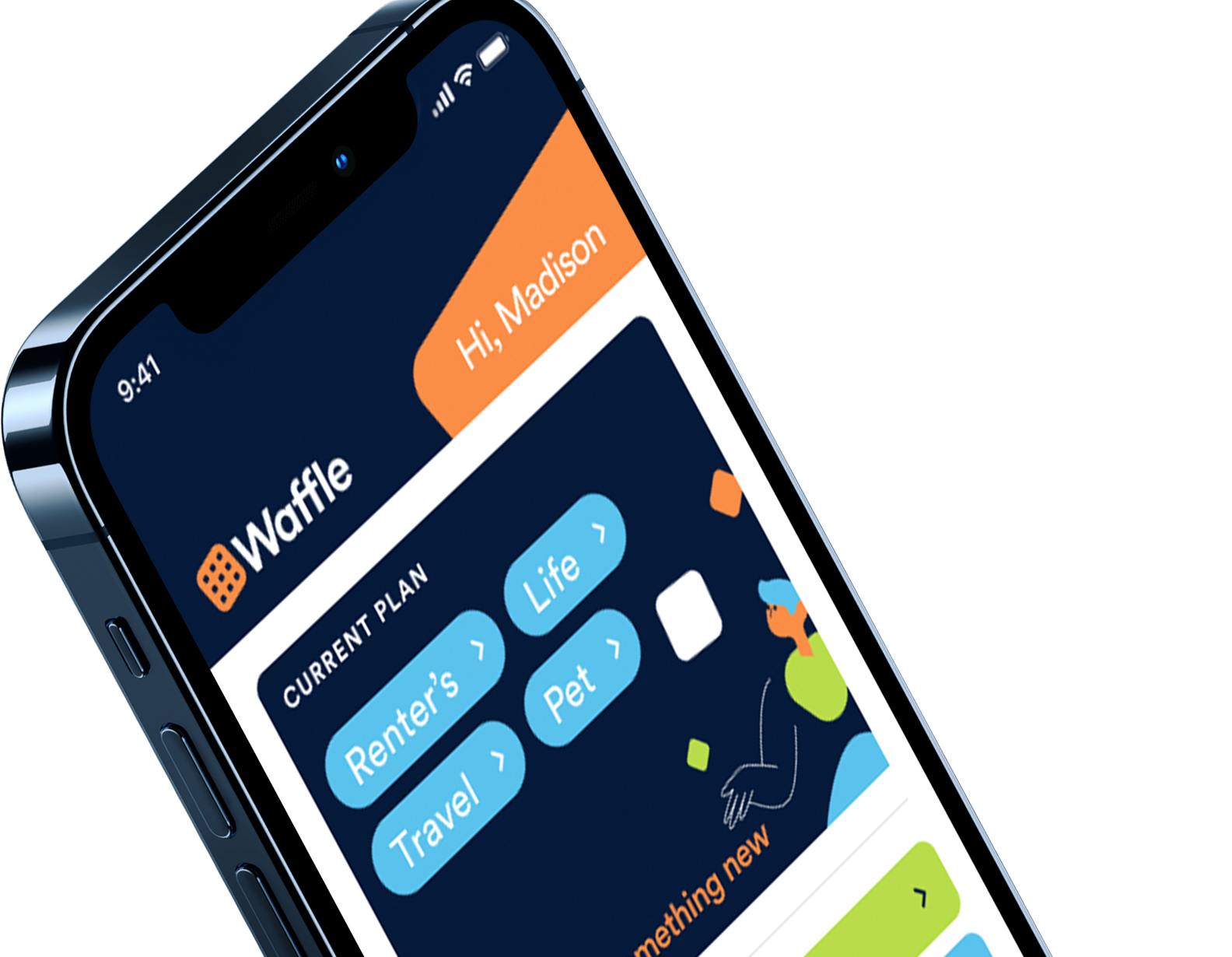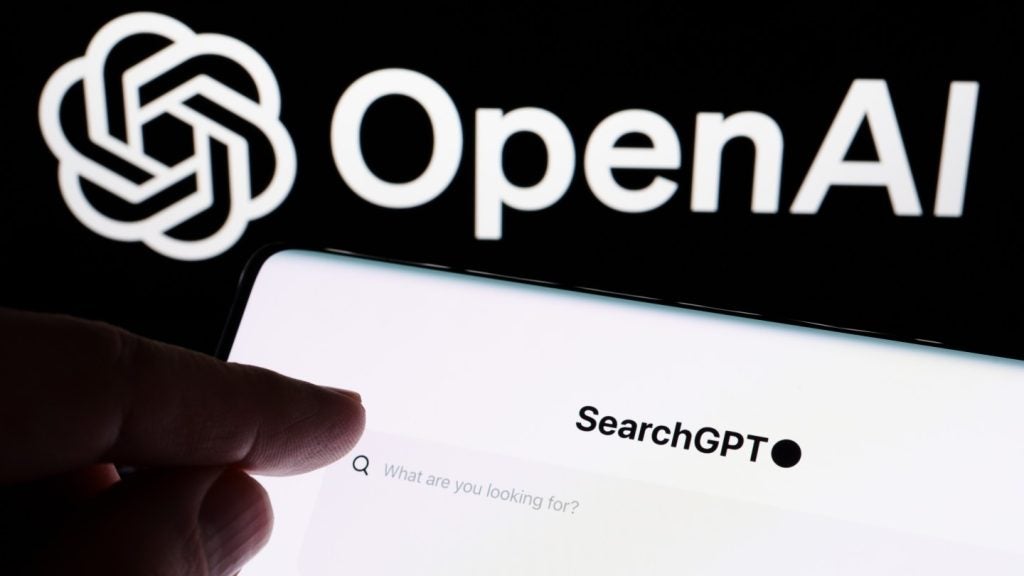
“How many people do you know who got sort of screwed by their insurance companies?” asks Quentin Coolen, co-founder and CEO of insurance tech startup Waffle, a company which has just raised a $5m seed round.
To Coolen, traditional insurance companies’ failure to support their customers became apparent during the pandemic. Around the world, consumers found that exclusions in their business or travel policies meant they didn’t cover the fallout of Covid-19.
In the UK, for instance, the insurance industry fought tooth and nail against having to pay out business interruption policy claims related to the first national lockdown. It was only when the Supreme Court ordered them to do so that they begrudgingly agreed to pay out hundreds of millions of pounds in claims.
“It doesn’t make sense to us,” Coolen tells Verdict. “What’s the purpose of insurance if it’s not there when it happens?”
That sort of behaviour is what Coolen and his co-founders aim to change with Waffle. The startup is the latest addition to a wave of insurtech innovators that have swooped in worldwide in recent years, eager to transform a sector that’s remained stagnant compared to sectors like finance and entertainment which have digitalised their services quicker.
To that end, Waffle has raised a $5m seed round led by Verve Ventures, with participation from BetterLabs Ventures and Techstars, the Barclay-powered accelerator that the startup is a graduate of. The company is, however, staying mum about what its valuation is.
“Obviously, our investors are insanely awesome, like any entrepreneur would say, but in our case they’re more than awesome, because they believed in a team that hadn’t built a business before,” says Coolen on the news, as announced today.
The round was originally supposed to be revealed in April, but was delayed as the company wanted to add more partners to the raise, meaning it had to wait for legal approvals.
In connection with it announcing the financial top-up, Waffle has officially launched on both iOS and the web; the launch means it is available across the US.
The new app aims to provide bespoke coverage for its customers. This is done in two ways: Firstly, it’s reliant on Waffle’s technology stack, which includes a proprietary holistic risk model named Galileo, a risk mitigation engine named Y.O.D.A., which stands for “Your Own Derisking Assistant”, and a proprietary onboarding engine. This enables users to sign up for custom insurance within minutes via the app.
The second part of the equation is the different insurers Waffle has partnered with. For life insurance, it has teamed up with MassMutual’s Haven Life Agency, Blink by Chubb provides cyber coverage, Crum & Forster offers pet insurance, Arch RoamRight serves up travel policies, Clearcover is an expert in auto coverage and Boost is a rent insurance provider.
“We partner with one provider in each vertical because we are very careful about the product that we offer,” Coolen says. “We want to offer the best products that we know of.”
This means that Waffle is not an insurance marketplace where different carriers compete for customers.
“It’s not the kind of use case aggregator that you see all the time where the whole game is about price – that’s not of interest to us,” he says. “We partner with each provider on each line and we commit not to add different providers for the same products. We don’t want to create competition here.”
Coolen’s argument is that, rather than competing on price, Waffle will be able to beat its competitors by offering best-of-breed policies. To do that, it is explicitly targeting “customers that are on the slightly wealthier side.”
“I’m not talking about investment bankers, but people in the US who make over 100,000 bucks a year, who value what they buy, not for the price of it, but for what it represents,” he explains.
As a note, the median household income in the US in 2019 was just above $68,700 and the average one was over $51,900, according to PolicyAdvice.
Times they are a-changing
The insurance industry has been slow to evolve with the times. Whereas other industries have rapidly embraced new technologies, insurance seemingly remained stuck in its old ways.
“There was no real incentive to change,” Coolen argues. “Everybody was doing the same thing. It was more about customer retention than it was about innovation.”
However, it was only a question of time before entrepreneurs would start to disrupt the sector. This was made clear last year when both Lemonade and Root Insurance made their public multi-billion debuts. And the success stories keep on coming. In March, UK-based insurtech Zego joined the unicorn club on the back of a $150m round. In light of the growing competition from startups, insurers have changed their tune.
“They’ve been slow over the years, but they’re not slow now,” Coolen says. “And I think it would be a mistake to underestimate their capacity to evolve very, very quickly.”
Waffle is counting on this change to accelerate its own growth, evident by its partnerships with different carriers.
“We take the approach that to, quote unquote, disrupt the industry, you need to partner with the industry because the industry is key,” he says. “And you can never ever, ever underestimate their knowledge and expertise on risk. These guys are some of the smartest people in the world. There is a reason why many of these guys have been there for 100 years.”
And the reason why they’re still here is because of their willingness to evolve, he says, adding that there are some exceptions to the rule.
“Once or twice, we’ve met the occasional asshole that thought he knew everything and he really didn’t,” Coolen admits. “And I’ll be happy naming names when I’m really successful. But other than that, I think the industry gets it.”
The road so far
Coolen, Michael Li and Sam Barnsley founded Waffle in 2018. At the time, Coolen had just helped launch the Insurance Development Forum, a public-private partnership between the UN, the World Bank and leaders in the insurance industry to address the insurance gap in developing markets.
While Barnsley was an avid insurance user and investment banker, he’d never thought of insurance until they happened to be sitting on a coach on the second floor of the MIT Sloan building in Cambridge, Massachusetts.
“Sam was saying, ‘Why can’t I just get Sam insurance?'” Coolen remembers.
And that was it. That question resulted in a conversation that saw them decide to launch Waffle. They were later joined by Li after a lunch where they discussed risk modelling. Initially, they joked that they would be able to offer extremely high coverage for consumers, envisioning them being granted tens of millions of dollars in payouts.
“Our first step was to get a good reality check about what was feasible,” Coolen laughs.
They did this by engaging with regulators and industry experts, which eventually resulted in their current model.
Their efforts were financed by winning different competitions and grants from MIT. They also took part in MIT’s Delta V accelerator.
“Our big first break was forming partnerships with some of the carriers that we have on the app and who believed in us,” he says.
Over the past two and a half years, the team has worked on building the tech stack and to sign partnerships with carriers whilst simultaneously arguing that policy exclusions could hurt policy holders. And then Covid-19 happened.
“A lot of the things that we had talked about were proven over the past year,” the CEO says, noting how some insurers refused to pay out policies.
With the lessons learned over the pandemic, the team is confident that the time is ripe for their solution. Waffle’s seed round will enable it to action plans to roll out new services over the next few months; the team is hoping to have up to 17 products on the platform by the end of 2021. That being said, Coolen is open to the fact that there are still tweaks to be made to the platform.
“We’ll see if people respond to it and we’ll probably have to make six million changes with the next few days, but that’s okay,” he says. “That’s part of the process. We’re just really excited to launch and see where it take us.”






